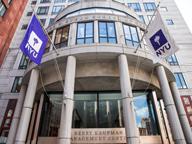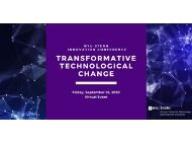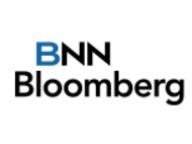School News
—
Current two-year Full-time MBA student Daniel Rodriguez (MBA ‘21) is profiled: “2020 First Generation MBAs: Daniel Rodriguez, New York University (Stern).”
—

Excerpt from Poets & Quants -- “I was very fortunate to find Management Leadership for Tomorrow (MLT), a minority focused organization that provided me with coaching, support, and a big family of friends as I prepared to apply to business school. It was through one of their programs that I connected with NYU Stern, and I immediately felt in love with its community. Stern gave me access to amazing professors, a broad number of experiential classes (which as a career-switcher was very important to me), and a community that truly looks out for one another. When I got that 'congratulations, you are admitted' call, it was a no-brainer, I knew I belonged there.”
School News
—

Excerpt from Poets & Quants -- “I was very fortunate to find Management Leadership for Tomorrow (MLT), a minority focused organization that provided me with coaching, support, and a big family of friends as I prepared to apply to business school. It was through one of their programs that I connected with NYU Stern, and I immediately felt in love with its community. Stern gave me access to amazing professors, a broad number of experiential classes (which as a career-switcher was very important to me), and a community that truly looks out for one another. When I got that 'congratulations, you are admitted' call, it was a no-brainer, I knew I belonged there.”













